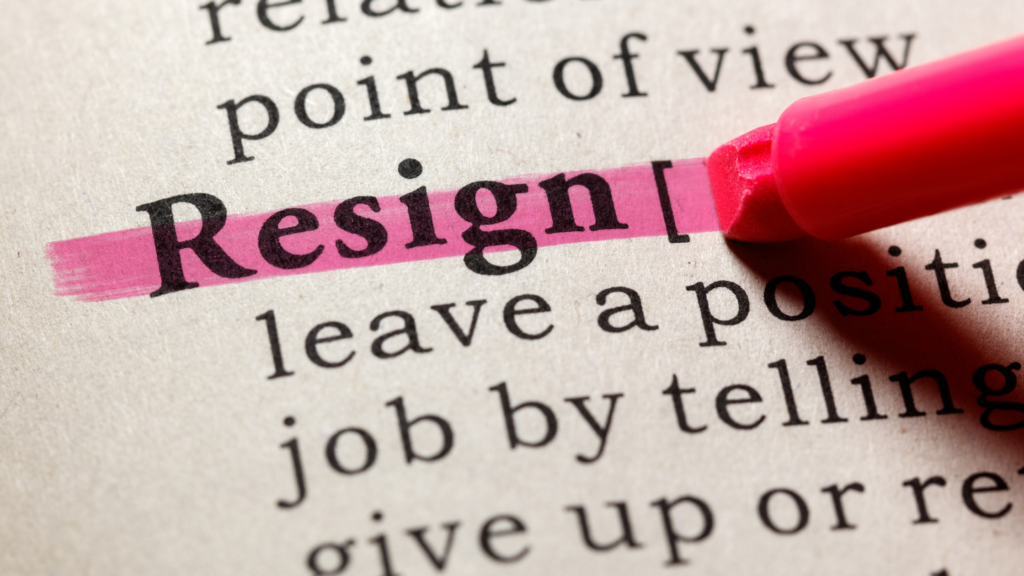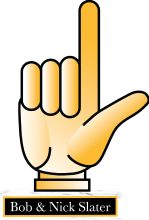“I realized I needed things you can’t give me.” From an email to all company employees by a departing employee (Reminiscent of “It’s not you, it’s me” said by “Gwen” to George Costanzo on Seinfeld)
In vogue at the moment is the “farewell email” wherein one departing a company sends a company-wide email announcing his or her departure. Some emails focus on what the company could and should do better, some contain personal potshots at bosses and others who have disappointed, and others simply give the author a platform to write about themselves. The practice is becoming so prevalent that some employers are asking new hires to write company-wide emails introducing themselves so that the workforce doesn’t think the exodus is a one-way street.
You too may be tempted to write such an email, whether you depart of your own volition, or not. Here’s suggesting that you don’t. Consider this advice from Elena Deutsch, a career coach for disgruntled lawyers: “Let it rip. Let everything out. Just don’t hit send. Leave the diatribe in the draft folder on your personal email, or better yet, put it on paper.”
So how do you leave your current employer in a manner that actually boosts the respect that others have for you, and that enhances your career? We send messages about who we are — and we advocate for ourselves — when we depart in a professional way. How you do so will be noticed by those where you worked and, if you have a new job, perhaps by those where you’re heading. Here are some tips.
Give adequate notice. Offer to stay through the date required by company policy. If asked to stay longer and doing so doesn’t create a conflict with your new employer, agree to a date that allows you to accomplish a project or something else of value to your current employer. If your employer doesn’t want you to stay through the company’s notice standard period, that’s fine (and you assumed as much in your planning).
Stay focused and do your job through your last day. Don’t coast to the finish line. Maintain full speed through your departure date. If you need a break, arrange for downtime between jobs. Transition work and customer relationships as directed.
Don’t take things without permission. We’ve talked about differentiating through character. Your departure is a moment when yours is on display. If you want something — documents, customer lists, product specifications, marketing materials, intellectual property — ask. Even if you created an item, it belongs to your employer if you created it during the time of your employment. Even if you believe an item is yours to take, don’t do so without first discussing it with your manager. The company where you’re going will have its own way of doing business. If it makes you feel better, materials taken tend to have less value — and for a shorter time — than people think.
Thank the right people for the opportunity they gave you. Whether you’re being fired or leaving of your own volition, if you feel you’ve developed skills, gained knowledge, or met people who will aid you going forward, the gracious thing to do is to express your appreciation. Do so in person if you can, then write a thank-you letter (not an email) after you leave. The letter — and the goodwill you create — may serve you well someday.
Ask for a recommendation, if warranted, regardless of company policy. Many large companies won’t give a recommendation as a matter of policy; they will only confirm dates of employment. They fear being sued — by a former employee who claims to have been defamed by a bad recommendation, or by a company that alleges serious malfeasance by a former employee who was hired on the basis of a good recommendation. Ask for a recommendation anyway. Don’t ask someone in the HR department (unless you’re in the HR department!). Ask someone who knows you and your work. If you’re good enough, and your relationship is strong enough, this person may be willing to ask for and obtain permission . . . or just do it without asking. No harm in you asking.
Mind your tongue, before and after departure. While still at your soon-to-be former job, disparage no one. Bad-mouthing people and engaging in passive-aggressive behavior will accomplish nothing but cause you regret later. If your employer hears of such behavior, expect to be putting your stuff in a box today. After you’ve left, continue to speak well of the company and the people you knew there. Disappoint those who call you wanting to hear bitterness and gossip.
When it’s time to leave, go! What happens at your former place of employment no longer concerns you. Suppress your curiosity to see how they’re managing without you. Even if you’re interested in what’s going on there, don’t go back to visit. Long-term, maintain your contacts, but let time pass before connecting with former colleagues. If some are friends you want to have lunch with, set boundaries. Don’t talk shop about your former company — don’t you bring it up, and, if your friend does, refuse to go there. If your company offers you space on-site to work on your job search, decline it. Work from a coffee shop if you must but get out. Don’t be someone — or be perceived as someone — who clings to the past and can’t move on. For your sake and theirs, separate physically and mentally.
 Being fired is not unlike being dumped by your high school girlfriend. You cried. You pined for lost love whilst deeming yourself unlovable. You tried numerous times to win her back. You wondered whom she was dating now. You talked about it with anyone who would listen. The next time a relationship ended, you’d learned how to behave and move on. Right?
Being fired is not unlike being dumped by your high school girlfriend. You cried. You pined for lost love whilst deeming yourself unlovable. You tried numerous times to win her back. You wondered whom she was dating now. You talked about it with anyone who would listen. The next time a relationship ended, you’d learned how to behave and move on. Right?
Finally, if you simply must, must write a farewell email to all of your (soon to be former) colleagues, and use the email to express appreciation. Express gratitude for the opportunities you were given, include a couple of career highlights if you wish, and wish the company continued success.
Source: Rachel Feintzeig, The Wall Street Journal, “Don’t be the Co-Worker with the Terrible Farewell Email,” February 28, 2022.


